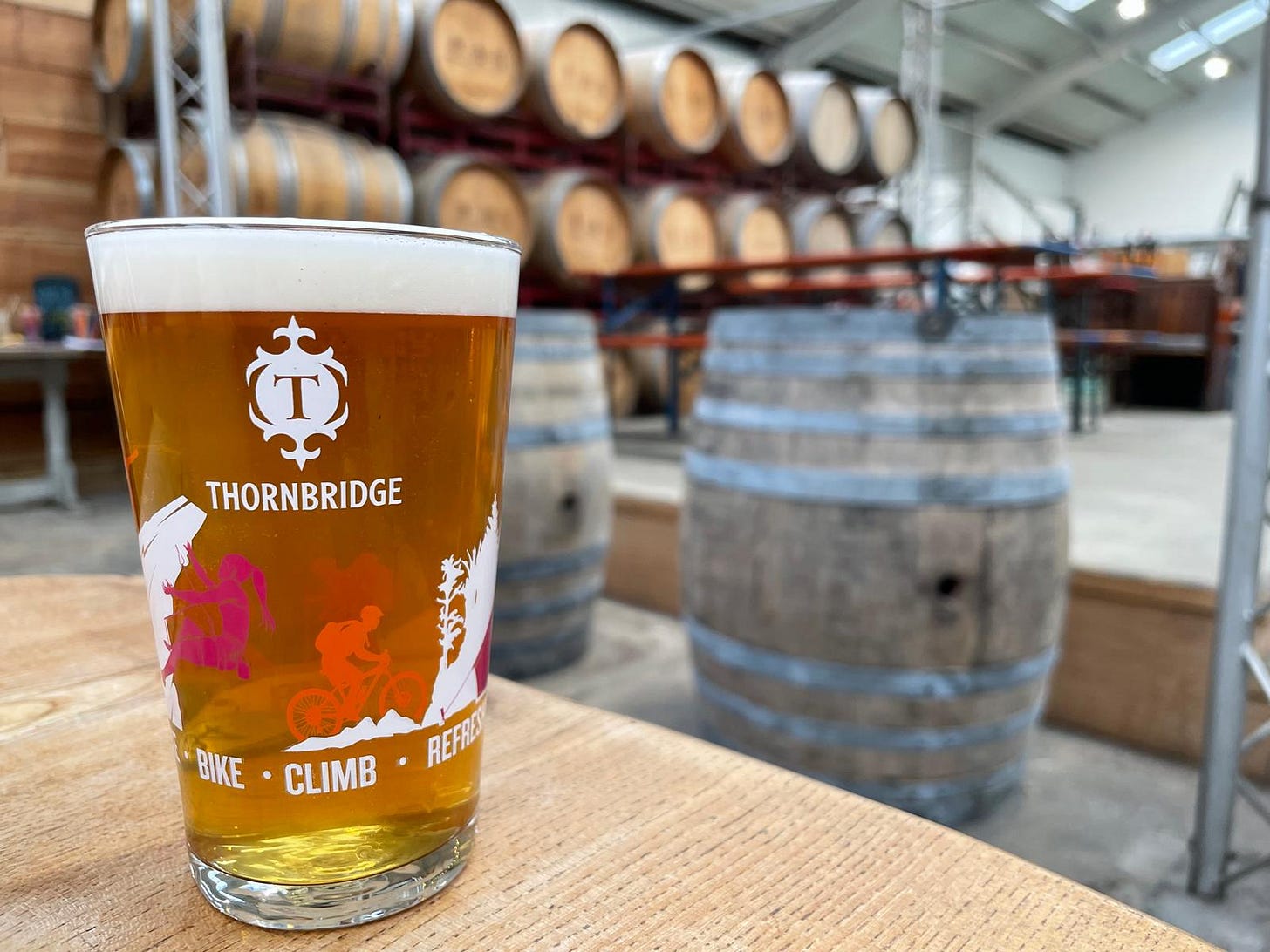By Phil Mellows
Once a month I’m privileged to have sight of the official beer sales figures for the UK. When they pop up in my inbox I duck behind the settee and peer at them through my fingers. I’m a cask beer drinker you see – well, about three-quarters of the time – and watching the steady and sometimes not so slow decline of the category is scary.
According to the pub trade’s Morning Advertiser this week, cask ale volumes dropped by more than 7% in the past 12 months on top of year after year of similar falls for as long as anyone can remember. Barely 8% of total beer sales in pubs and bars – also in decline – are now poured from a handpump. I remember when it was twice that and people were worried then.
Does this mean cask is going to disappear entirely? If you only look at these topline numbers that would be your conclusion. But the full picture is intriguingly messy.
Some brewers are seeing cask sales climb. Theakston, for instance, last week reported a third consecutive year of growth based on a “renewed interest” in the category. The Yorkshire firm has experimented with modern styles in cask, but its more traditional best-sellers are also going well. That’s Theakston Best, a fairly standard sort of bitter, the stronger XB, one of my favourites 30 years ago when it was available nationally, and Old Peculier, a hard to define dark beer that’s a hefty 5.6% abv.
It’s hard to make sense of this. Ask me off the cuff about the future of cask and I’d point to a trend towards lower-strength paler ales, encouraged by favourable duty rates, and cask versions of highly hopped, sometimes hazy, craft beers.
But there is also a stirring of interest in ‘retro’ styles, with modern brewers bringing out their own takes on bitter and mild. Only yesterday I drank a Dark Mild IPA hopped with Chinook and Citra at the Unbarred Brewery taproom in Brighton. Weird oxymoronic stuff (a dark pale) but it suggests something’s going on.
Manchester’s Cloudwater, one of the sexiest names in beer, has just launched a pair of cask ales, available only in its own bars, one showcasing English hops (Long are the Nights), the other American (Gone are the Days).
They aim, says the brewery’s Instagram feed, to “capture the essence of the brewing landscape from the late 70s and tell the story of the evolution of British beer”. That’s a heavy narrative load for two beers to bear but it’s the intention that’s significant. It reflects a rising consciousness of the journey we’re on – and it’s a long way from “a pint of the usual”.
Then you have Thornbridge Brewery playing around with its Burton Union set (pictured) and coming up with more expressions of ‘heritage’ cask styles, including collaborations with US brewing legend Garrett Oliver.
Meanwhile, there’s been a resurgence in sales of Draught Bass, of all things, such that its reluctant brand owner, global brewing giant AB Inbev, has broken with years of neglect to launch a sales drive complete with flashy Instagram account, and Timothy Taylor’s Landlord, another long-established brew, is now the nation’s top-selling cask beer.
Drinkers seem to have a desire to both return to classics such as old Peculier, Bass and Landlord, and to try with something daring and new. It’s the brands that fall between that seem to be losing out. And I believe the continuing decline of cask has also something to do with changes in the places that sell it.
For a long time, I’ve thought that serving cask ale properly is becoming a specialist job, and post-pandemic many more pubs have made the decision not to stock it and repurpose their handpumps as blue roll spindles. Finding a pint in some parts of the country (London especially) has grown harder. The huge surge in Guinness sales, a common default purchase, in part results from this.
We no longer live in a time when cask beer is the staple of every corner pub, and that may be a good thing as far as quality is concerned. It also means dedicated cask drinkers might have to put in a little more effort to find the pub for them.




Thanks for the read. I do wonder, if in part, the successes are an 'either or' of historic distribution agreements to access a large pub estate (e.g. Theakstons) or brands that have achieved a cult status via various means.As you suggest, the middle ground is falling by the wayside.
Well I'm incurring the wrath of my GP by trying to keep the volume of cask sales up in East London. My Google maps list of Favourite Cask Pubs in London (2 or more well kept, non-generic cask ales) currently has 60 entries so my experience is I don't have to put in a lot of effort to find a decent pint of proper beer. Yes, there are closures but I think a lot of it is a "wheat/chaff' exercise. Nowhere on my list has closed.